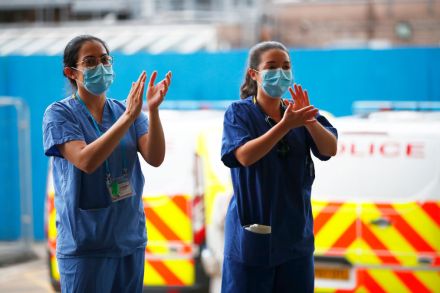Canned fish, nickels and Swindon pools – the unlikely origins of band names
You wouldn’t have thought that Starbucks’s pricing policy could influence rock history, but that’s what happened. In the early 1990s, when Mike Kroeger was working in one of its Canadian stores, a cup of coffee cost $1.95. So Kroeger spent all day handing customers their five cents change, saying: ‘Here’s your nickel back.’ When he later joined a band, and it needed a name, he simply combined the last two words into one. Neil Tennant and Chris Lowe, on the other hand, had some friends who, because of their place of employment, were known as the ‘pet shop boys’. The band themselves don’t use the ‘the’, though of course everyone





















